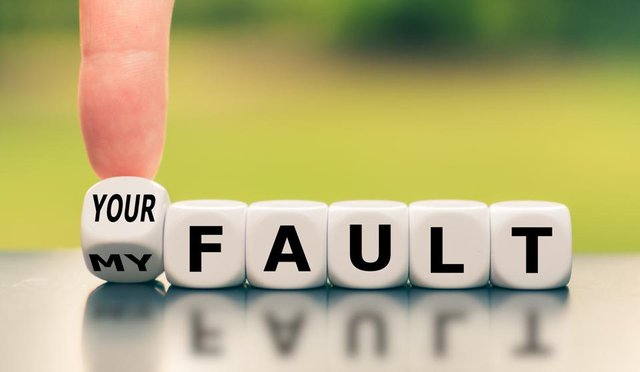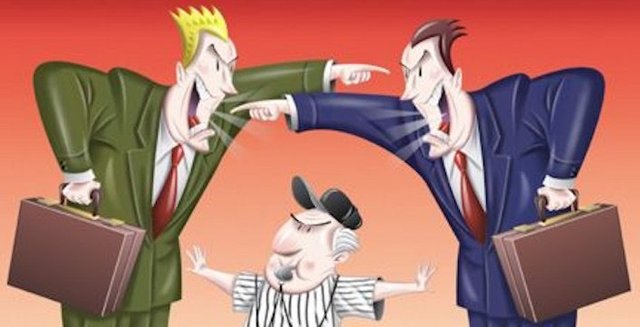The constant struggle we all have to cope with, whether it's personal or professional, is so consuming and emotionally draining that we are prone to engaging in behavior such as the "Blame Game." "The Blame Game" is when a person attempts to place another person, usually themselves, in a negative light, usually to defend their self-interest. Usually, the person doing the blaming is quite aware that the situation is ridiculous and that they are making a big deal out of nothing. And then they become defensive and counter attack, usually emotionally.
The basis of the blame game is a cycle of four irrational beliefs: first, if something went wrong (or isn't the way it ought to be), someone other than me must be blamed and identified for causing the problem. Second, that person or group must be blamed for making the mistake(s). Third, that individual (or group) must be blamed for not understanding or refusing to stop making the same mistakes. Fourth, that the mistake or mistakes will continue to be made unless I do something about it. (usually, it never gets fixed because everyone keeps blaming everyone else.)
There is another belief that is closely related to the "blaming others" concept, which is that it is my job to make sure they don't make mistakes. For instance, if you are a teacher and a student were to make a comment that was not correct, the teacher would be justified in blaming the student. The student would then be justified in believing that it is their job to make sure everyone knows what they're doing wrong. We see this all the time in school, where teachers and students will take personal responsibility for their actions instead of acting like teachers, listening, asking questions, and fostering open communication. The end result is the same, everyone is blaming others for their own problems, with the inevitable result that the problems keep getting worse.
So, how to stop playing the blame game? First, start by owning up to your part in the mistakes. You might find that owning up is easier than facing the reality and that your actions are the result of your beliefs and your personal responsibility instead of being the result of a circumstance. When you own up to your part in a mistake, it removes the incentive for you to blame others. The tendency is to look at blame as an external thing - something that you can change, rather than looking at it as an internal thing - something that you cannot change.
Next, when it comes to change, you have to ask yourself why you are playing the blame game. It has to be based on an internal understanding that something wrong exists within yourself. This will be much more difficult to do if you are surrounded by people who continue to blame others for their problems. In many cases, it will be a good idea to bring the focus inward. Once you understand why you are assigning blame, then you can begin to find a solution that works for you.
Finally, once you have adopted an alternative blame game and have replaced it with an alternative understanding, you must make a fresh start. You must not take the same faulty action again. This is probably the hardest part of the reopening process because you need to give yourself space and let it be OK to let go of the past. However, this is the only way to fully understand and overcome the faults that contributed to the problem in the first place.

